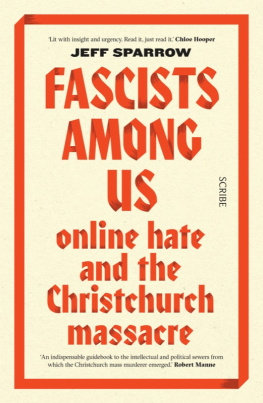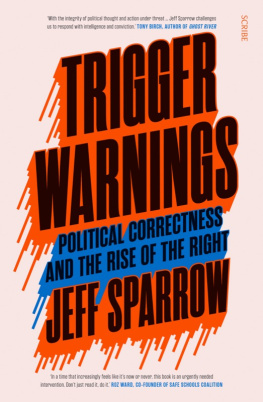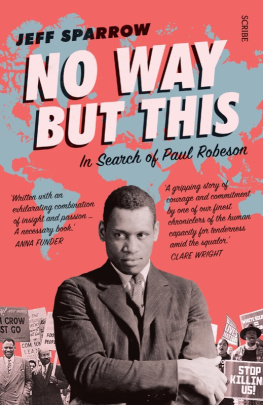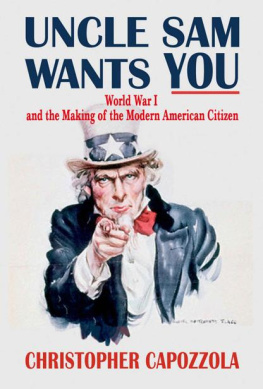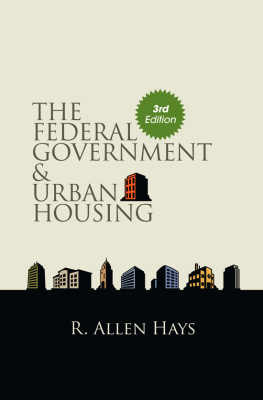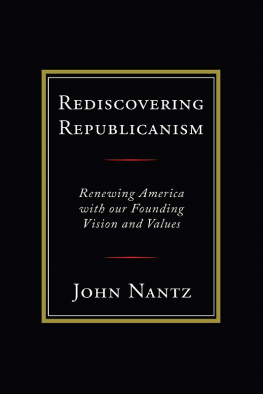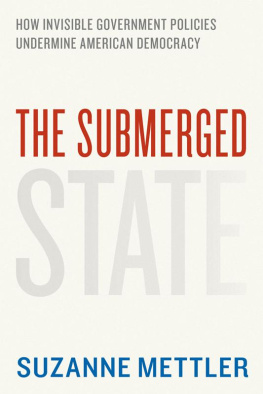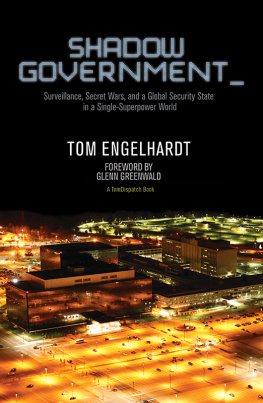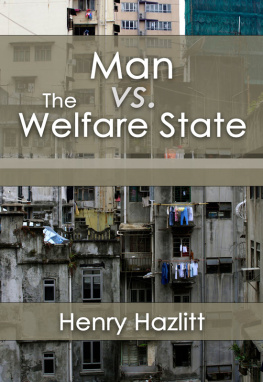Warfare State
Warfare State
World War II Americans and the Age of Big Government
JAMES T. SPARROW


Oxford University Press, Inc., publishes works that further
Oxford Universitys objective of excellence
in research, scholarship, and education.
Oxford New York
Auckland Cape Town Dar es Salaam Hong Kong Karachi
Kuala Lumpur Madrid Melbourne Mexico City Nairobi
New Delhi Shanghai Taipei Toronto
With offices in
Argentina Austria Brazil Chile Czech Republic France Greece
Guatemala Hungary Italy Japan Poland Portugal Singapore
South Korea Switzerland Thailand Turkey Ukraine Vietnam
Copyright 2011 by Oxford University Press, Inc.
Published by Oxford University Press, Inc.
198 Madison Avenue, New York, NY 10016
www.oup.com
Oxford is a registered trademark of Oxford University Press
All rights reserved. No part of this publication may be reproduced,
stored in a retrieval system, or transmitted, in any form or by any means,
electronic, mechanical, photocopying, recording, or otherwise,
without the prior permission of Oxford University Press.
Library of Congress Cataloging-in-Publication Data
Sparrow, James T.
Warfare state: World War II Americans and the age of big government/James T. Sparrow.
p. cm.
Includes bibliographical references and index.
ISBN 978-0-19-979101-9
1. World War, 19391945Political aspectsUnited States. 2. World War, 19391945Social aspects
United States. 3. United StatesPolitics and government19331945. 4. Politics and warUnited
StatesHistory20th century. 5. Political cultureUnited StatesHistory20th century. 6. Social change
United StatesHistory20th century. 7. CitizenshipUnited StatesHistory20th century. 8. Federal
governmentUnited StatesHistory20th century. 9. Legitimacy of governmentsUnited States
History20th century. 10. Military-industrial complexUnited StatesHistory20th century. I. Title.
D742.U5S7 2011
940.5373dc22 2010039420
1 3 5 7 9 8 6 4 2
Printed in the United States of America
on acid-free paper
For Simon Sparrow
CONTENTS
Warfare State
Introduction: War and the Mass Foundations of the Modern State
On January 11, 1944, Americans gathered around the radio hearth to hear their president, Franklin Delano Roosevelt, deliver a fireside chat. There is only one front, he told his listeners. There is one line of unity which extends from the hearts of the people at home to the men of our attacking forces in our farthest outposts. It was a message Americans had heard often, repeated in one form or another by agencies concerned with their war-mindedness. After years of repetition it had begun to sink in. By conflating the actions of civilians fighting on the home front with the real battles fought by GIs overseas, wartime rhetoric reinforced rising expectations fostered by a buoyant war economy, and attached them firmly, if vaguely, to the government as a guarantor of basic fairness wherever it touched daily lifewhich was nearly everywhere during the war.
The fireside chat of January 1944 stuck in the minds of so many Americans because it was the one in which Roosevelt made his case for an economic bill of rights that would guarantee a genuine national citizenship to all Americans who had struggled together in war. Making the case for a definition of citizenship modernized to include a comprehensive range of social rights, without which the true individual freedom promised by political and civil rights cannot exist, Roosevelt set the liberal agenda for the postwar period. His words resonated so widely because they articulated the fictive social contract on which so much of the war effort depended in order to justify the exertions of mass participation in the mobilization for total war. He further bolstered the universalistic implications of his promises by portraying the national project as an epochal moment in world history. The nation, he said at the opening of his address, was an active partner in the worlds greatest war against slavery. We have joined with like-minded people in order to defend ourselves in a world that has been gravely threatened with gangster rule.
The rising expectations unleashed by the war did not amount simply to demands for entitlements. If citizens had an individual stake in the preservation
From the very beginning, then, the liberal ideals of freedom and rights championed by Roosevelt and his war administrators were predicated on the greater obligation to meet the requirements of national belonging. Contributing to the war effort might foster visions of national citizenship and even provide new guarantees of federal protection, but such claims were always to remain subordinatedpractically, to the requirements of the war government, and symbolically, to the demands of the combat soldier. Americanism provided the language, imagery, and cultural logic by which clashing claims on the government could be made. In the end, Americanism went hand in hand with entitlement, policing as well as authorizing it.
The Americans who lived through the Second World War partook of a sweeping transformation in the foundations of national government. Internationally, American power leapt far beyond territorial bounds, inaugurating an era of globalism. Domestically, warfare replaced welfare as the central purpose of the national state. More than in any other period since the Civil War, changes in government politicized everyday life, touching nearly every American. For soldiers and civilians alike, the war instilled a sense of entitlement to full citizenship that the federal government increasingly would have to placate, if not always fulfill, in subsequent years. At the same time, and for related reasons, the integrity of the state and the loyalty of its employees and citizens became paramount concerns, subject to the increasingly stringent criteria of a normative and bureaucratized Americanism.
The obligations of national belonging that exponents of Americanism asserted, together with the rights of national citizenship to which ordinary Americans increasingly claimed entitlement, legitimized the federal leviathan erected during the war. Nationalism and social democratic egalitarianism had been contending impulses in American political life for decades, much as they had been for the other powers participating in the war. It took the ideological threat of a European continent ruled by German National Socialism, combined with the racial specter of an entire hemisphere of Asians united by imperial Japan, to fuse the two impulses into a new mode of American statism.
Total war changed the stakes of national governmenteven in the United States, where it brought full employment and economic mobilization rather than shelled-out cities and masses of refugees. Within the span of half a decade the United States departed from some of its longest and most dearly held political traditions. The first of these departures was the permanent peacetime draft, inaugurated in late 1940, which violated an aversion to conscription and large standing armies dating back to the Revolution. It shaped the most basic requirements of male citizenship for more than a generation, while providing a ready source of manpower for the vast military establishment erected in these years.
The United States wartime alliance, the second major departure, represented a historic break with more than a century of international aloofness predating the Monroe Doctrine. Starting in the spring of 1941, Lend-Lease inaugurated a massive program of aid to Britain and, eventually, to other Allied nations fighting against the Axis powers. These provisional measures eventually pulled the United States into a constellation of long-term alliances whose entanglements persisted decades into the postwar period.
Next page


